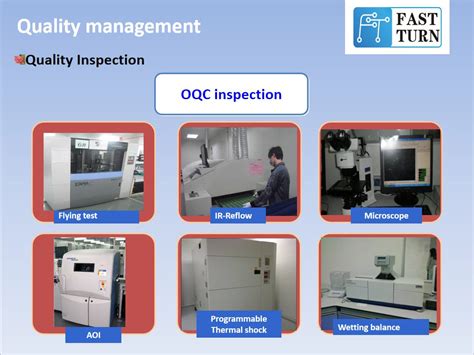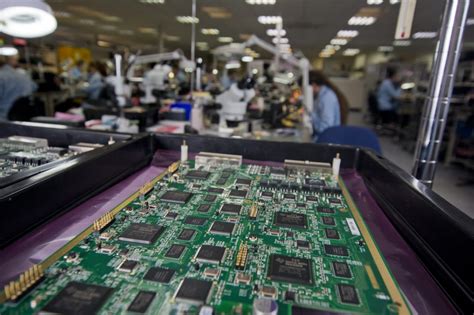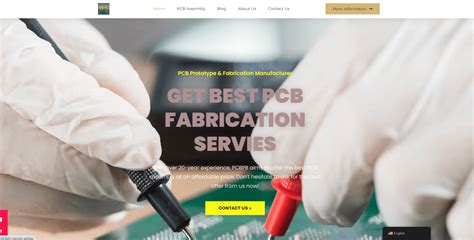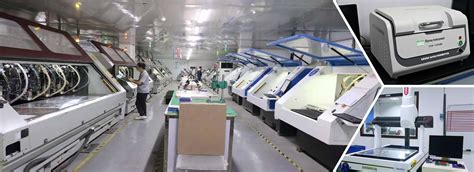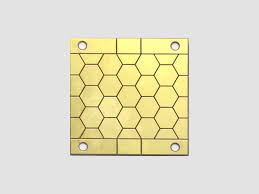Swift PCB Assembly Solutions for Accelerated Product Development

Key Takeaways
In modern electronics manufacturing, PCB assembly plays a pivotal role in bridging design concepts to functional products. Leveraging quick-turn PCBA services enables companies to compress prototyping phases while maintaining rigorous quality standards. These solutions prioritize rapid PCB assembly workflows, ensuring design iterations and functional testing occur within days rather than weeks. By integrating automated processes and advanced component sourcing, manufacturers achieve unmatched agility in adapting to evolving project requirements.
A critical advantage lies in minimizing time-to-market through synchronized engineering and production stages. For instance:
| Factor | Traditional Timeline | Quick-Turn PCBA |
|---|---|---|
| Prototype Development | 3–4 weeks | 5–7 days |
| Design Iteration Cycles | 2–3 weeks | 48–72 hours |
| Scalable Production | 6–8 weeks | 2–3 weeks |
This efficiency is further amplified by real-time collaboration between design teams and PCBA providers, ensuring seamless transitions from schematic validation to final product testing. Additionally, rapid PCB assembly services mitigate risks associated with component shortages or logistical delays, enabling businesses to meet strict deadlines without compromising reliability. By adopting these strategies, companies can systematically accelerate development cycles while maintaining cost-effectiveness and technical precision.
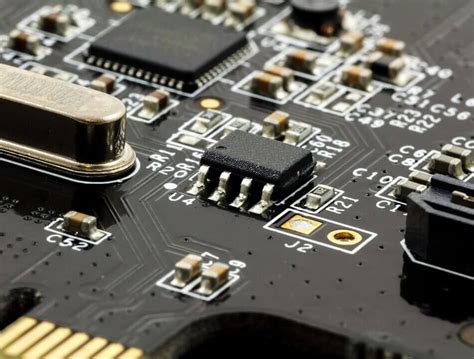
Rapid PCB Assembly for Faster Prototyping
In today’s competitive electronics landscape, rapid PCB assembly serves as a cornerstone for accelerating prototyping phases. By leveraging advanced PCBA (printed circuit board assembly) techniques, engineers can compress lead times from weeks to days, enabling faster iteration cycles. Modern quick-turn services integrate automated pick-and-place systems and precision soldering technologies, ensuring consistent quality even under tight deadlines. This approach allows teams to test PCB designs for functionality and manufacturability early, identifying potential design flaws before mass production.
Transitioning from concept to functional prototype hinges on streamlined workflows, where PCB assembly providers prioritize both speed and accuracy. For instance, surface-mount technology (SMT) combined with automated optical inspection (AOI) reduces manual errors while maintaining rapid turnaround. Such efficiency is critical for startups and established firms alike, as delayed prototyping can cascade into missed market opportunities. By adopting PCBA solutions optimized for speed, businesses gain the flexibility to refine product features iteratively without sacrificing reliability.
Moreover, partnerships with certified PCB assembly manufacturers ensure access to scalable resources, from component sourcing to final testing. These collaborations often include design for manufacturability (DFM) reviews, which preemptively address compatibility issues between schematics and production capabilities. As a result, rapid prototyping becomes not just a technical step, but a strategic advantage in shortening development timelines and achieving market readiness.
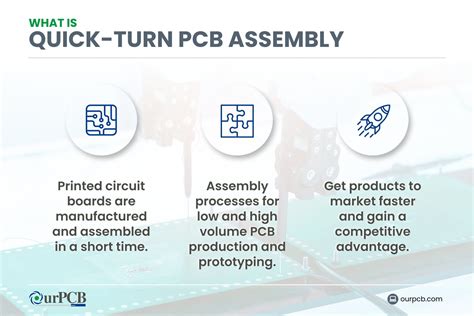
Streamlining Electronics Manufacturing Timelines
Modern PCB assembly processes are pivotal in compressing production schedules without compromising quality. By integrating advanced PCBA workflows, manufacturers minimize delays between design finalization and functional prototype validation. Automated pick-and-place systems, precision soldering technologies, and real-time quality assurance protocols ensure that time-to-market targets are met consistently. For instance, optimized surface-mount technology (SMT) lines reduce manual intervention, accelerating batch processing by up to 40% compared to traditional methods.
A critical advantage lies in just-in-time material sourcing, which synchronizes component procurement with assembly timelines. This approach mitigates inventory bottlenecks, particularly for high-mix, low-volume projects requiring specialized parts. Additionally, PCB assembly providers leveraging cloud-based collaboration tools enable engineers to resolve design revisions mid-process, avoiding costly respins. Such agility is essential for industries like IoT and medical devices, where rapid iteration cycles dominate development phases.
By aligning PCBA stages with parallel testing protocols—such as in-circuit (ICT) and functional testing—teams identify flaws earlier, reducing rework cycles. This holistic integration of speed and precision ensures that even complex multilayer boards transition seamlessly from prototyping to mass production, keeping electronics projects on schedule and within budget.

Accelerating Product Development With Quick-Turn PCBs
Modern electronics innovation demands agility, and PCB assembly services tailored for rapid turnaround are critical to meeting compressed development timelines. By leveraging quick-turn PCB assembly capabilities, engineers can transition from prototyping stages to full-scale production in days rather than weeks. Advanced manufacturers utilize automated PCBA workflows, combining high-precision component placement with accelerated soldering processes, to ensure functional prototypes align with design intent without compromising quality.
Tip: Early collaboration with your PCB assembly partner during the design phase can preempt delays. Sharing detailed Gerber files and bill of materials (BOM) upfront streamlines material sourcing and reduces revision cycles.
The integration of just-in-time manufacturing principles in PCBA workflows further minimizes idle periods between design iterations. Rigorous in-process testing, such as automated optical inspection (AOI) and functional verification, ensures reliability even under tight deadlines. For startups and established enterprises alike, this approach transforms time-to-market challenges into competitive advantages, enabling faster validation of market-ready products. By aligning quick-turn PCB assembly with iterative development strategies, teams can systematically address design flaws, optimize performance, and scale production seamlessly.
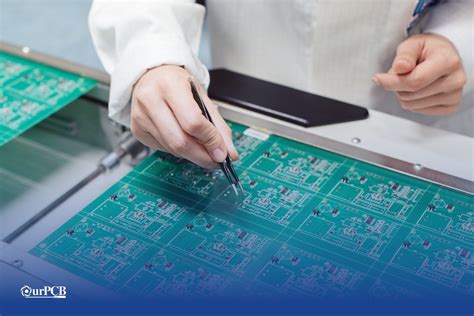
High-Speed PCB Assembly Service Benefits
Integrating high-speed PCB assembly into product development workflows unlocks critical advantages for modern electronics projects. By leveraging quick-turn PCBA capabilities, teams can compress prototyping timelines by up to 70%, enabling rapid iteration of design concepts without compromising quality. Advanced manufacturers utilize automated optical inspection (AOI) systems and precision pick-and-place machinery to ensure zero-defect outcomes even under accelerated production schedules.
A key benefit lies in the seamless synchronization between PCB assembly and component sourcing. Trusted suppliers maintain real-time inventories of critical parts, eliminating delays caused by material shortages. This just-in-time procurement strategy aligns with agile development cycles, allowing engineers to validate functional prototypes within days rather than weeks. Additionally, optimized panelization techniques reduce material waste, lowering costs for small-batch runs.
For industries like IoT or medical devices, where rapid PCBA services are non-negotiable, these processes mitigate risks associated with market entry delays. The ability to test multiple design variants concurrently accelerates failure analysis, ensuring robust final products. By prioritizing traceability protocols and ISO-certified workflows, high-speed assembly partners deliver not only speed but also compliance with stringent industry standards.
Transitioning to the next phase, these efficiencies directly support meeting tight deadlines—a theme explored further in downstream production stages.
Meeting Tight Deadlines With Swift PCB Solutions
In industries where time-sensitive projects dominate, leveraging PCB assembly services with rapid turnaround capabilities becomes critical. Modern PCBA providers employ advanced manufacturing workflows, combining automated processes with precision engineering, to deliver fully assembled boards in as little as 24–48 hours. This agility allows engineering teams to bypass traditional bottlenecks, particularly during iterative testing phases or last-minute design adjustments. By aligning PCB assembly timelines with project milestones, companies can maintain momentum even when facing compressed development schedules.
Key to this efficiency is the integration of just-in-time material sourcing and modular production systems, which minimize idle periods between prototyping and volume manufacturing. Additionally, stringent quality checks embedded within accelerated PCBA workflows ensure reliability without compromising speed—a balance vital for avoiding costly revisions post-deployment. For startups and established enterprises alike, adopting swift PCB solutions translates to fewer supply chain disruptions and the ability to respond dynamically to market demands. When paired with collaborative design feedback loops, these services solidify their role as enablers of punctual product launches in competitive sectors.
Optimizing Production Cycles Through Rapid Assembly
In modern electronics manufacturing, PCB assembly plays a pivotal role in minimizing delays and aligning with dynamic project timelines. By leveraging quick-turn PCBA services, companies can compress traditional production schedules by up to 60%, enabling faster iterations during prototyping and validation phases. This agility is particularly critical for time-sensitive projects, where even minor delays in component placement or soldering can derail product launches. Advanced manufacturers achieve this through automated workflows, synchronized material procurement, and real-time quality checks, ensuring that PCB assembly processes maintain precision despite accelerated timelines.
A streamlined PCBA approach also mitigates risks associated with supply chain bottlenecks. By integrating just-in-time inventory strategies with rapid-turnkey solutions, teams reduce idle periods between design finalization and mass production. For instance, high-mix, low-volume batches benefit from flexible manufacturing lines that adapt to design changes without requiring full retooling. This not only accelerates time-to-market but also enhances cost efficiency, as fewer resources are wasted on redundant prototyping cycles. Ultimately, optimizing production through rapid PCB assembly creates a competitive edge by aligning manufacturing velocity with evolving market demands.
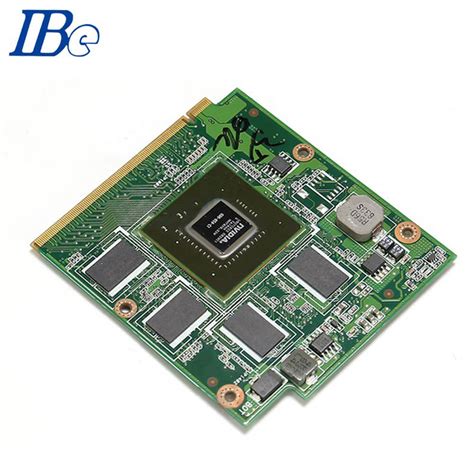
Quick-Turn PCB Services for Reliable Prototypes
When developing electronic products, PCB assembly speed and precision directly influence prototyping outcomes. Modern quick-turn PCBA providers leverage advanced manufacturing workflows to deliver functional prototypes within 24-72 hours, enabling engineers to validate designs faster. By integrating automated pick-and-place systems and precision soldering technologies, these services ensure consistent quality even under compressed timelines.
A critical advantage lies in the seamless coordination between PCB fabrication and component procurement. Trusted suppliers maintain real-time inventory tracking for common ICs, connectors, and passive elements, eliminating delays caused by material shortages. For complex designs, engineers benefit from concurrent engineering support, where PCBA experts optimize layout files for manufacturability without compromising electrical performance.
Transitioning from prototype to production becomes smoother when using the same PCB assembly partner, as process parameters and testing protocols remain standardized. Rigorous in-circuit testing (ICT) and functional validation at the prototype stage reduce post-production rework risks. This approach not only accelerates iterations but also aligns with tight development schedules, ensuring market-ready prototypes meet both technical specifications and project milestones.
Reducing Time-to-Market With Efficient PCB Assembly
Central to this acceleration is the role of PCB assembly in bridging design and manufacturing. By integrating advanced PCBA processes with just-in-time component sourcing, manufacturers can eliminate bottlenecks that traditionally delay prototyping. Automated pick-and-place systems, coupled with precision soldering techniques, ensure high-yield production while adhering to strict timelines. For industries requiring quick-turn PCB assembly, streamlined workflows reduce lead times from weeks to days, enabling faster iteration cycles.
A critical advantage lies in design-for-manufacturability (DFM) analysis, which identifies potential issues early, minimizing rework. Partnering with PCB assembly providers that offer real-time progress tracking further optimizes coordination between engineering and production teams. This approach not only accelerates validation but also ensures compliance with industry standards, reducing risks in mass production.
Leveraging PCBA expertise also addresses supply chain challenges, as certified vendors maintain robust networks for component procurement. The combination of rapid prototyping and scalable manufacturing creates a seamless path from concept to market-ready products. By prioritizing efficiency in PCB assembly, businesses can capitalize on emerging opportunities while maintaining cost-effectiveness—key to thriving in fast-paced electronics markets.
Conclusion
In today’s fast-paced electronics industry, leveraging advanced PCB assembly techniques is critical for maintaining competitive momentum. By integrating quick-turn PCBA solutions into development workflows, businesses can effectively bridge the gap between prototyping and full-scale production. These services prioritize speed without compromising on precision, enabling engineers to iterate designs rapidly and validate functionality under real-world conditions.
The strategic adoption of rapid PCB assembly not only reduces time-to-market but also minimizes risks associated with prolonged testing phases. Manufacturers equipped with agile PCBA capabilities can adapt to last-minute design changes, ensuring alignment with evolving market demands. Furthermore, the scalability of modern assembly processes supports seamless transitions from low-volume prototypes to high-volume runs, reinforcing supply chain resilience.
Ultimately, partnering with a PCB assembly provider that specializes in accelerated timelines empowers companies to meet stringent deadlines while upholding rigorous quality standards. This approach transforms product development from a linear process into a dynamic cycle, where innovation thrives through efficiency and technical agility.
FAQs
What distinguishes quick-turn PCB assembly from standard services?
PCB assembly with quick-turn capabilities prioritizes compressed timelines, often delivering PCBA prototypes within 24-72 hours. This contrasts with standard services, which may require weeks for design verification and component sourcing.
How does rapid PCB assembly accelerate product development?
By minimizing wait times between design iterations, quick-turn PCBA enables engineers to test and refine prototypes faster. This agility reduces time-to-market by resolving design flaws early, ensuring smoother transitions to mass production.
Are quick-turn PCB assembly services reliable for complex designs?
Advanced manufacturers combine automated assembly processes with stringent quality checks, ensuring high-speed PCB assembly maintains reliability. Technologies like automated optical inspection (AOI) validate even multilayer or high-density interconnect (HDI) boards.
What factors influence turnaround time in PCBA projects?
Component availability, design complexity, and assembly techniques (e.g., surface-mount vs. through-hole) directly impact timelines. Partnering with a supplier offering real-time inventory tracking and rapid PCB assembly workflows mitigates delays.
Can quick-turn services accommodate small-batch production?
Yes, many providers specialize in low-volume PCB assembly runs, ideal for startups or iterative prototyping. This flexibility supports cost-effective scaling from 10 to 10,000 units without compromising speed.
Accelerate Your Project With Expert PCB Assembly Solutions
Streamline your product development cycle with tailored quick-turn PCBA services. Click here to explore optimized solutions for your next project.

